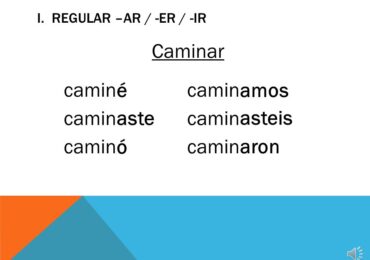In general, it may be said that the total society is the agents of socialisation and that each person with whom one comes into contact and interact is in some way an agent of socialization. Socialization is found in all interactions but the most influential interaction occurs in particular groups which are referred to as agencies of socialization.
The oblivious beginning of the process for the new-born child is-his immediate family group, but this is soon extended to many other groups. Other than the family, the most important are the schools, the peer groups (friends circle), and the mass media.
Socialization
How do we learn to interact with other people? Socialization is a lifelong process during which we learn about social expectations and how to interact with other people. Nearly all of the behavior that we consider to be ‘human nature’ is actually learned through socialization. And, it is during socialization that we learn how to walk, talk, and feed ourselves, about behavioral norms that help us fit into our society, and so much more.
Read Also: concentration gradient
Socialization occurs throughout our life, but some of the most important socialization occurs in childhood. So, let’s talk about the most influential agents of socialization. These are the people or groups responsible for our socialization during childhood – including family, school, peers, and mass media.
Family
There is no better way to start than to talk about the role of the family in our social development, as a family is usually considered to be the most important agent of socialization. As infants, we are completely dependent on others to survive. Our parents, or those who play the parent role, are responsible for teaching us to function and care for ourselves. They, along with the rest of our family, also teach us about close relationships, group life, and how to share resources. Additionally, they provide us with our first system of values, norms, and beliefs – a system that is usually a reflection of their own social status, religion, ethnic group, and more.
For example, Alexander, a young boy who lives in America, was born to an immigrant family. He grew up bilingual and was taught the importance of collectivistic values through socialization with his family. This experience differs drastically from someone born to an older, ‘traditional’ American family that would emphasize the English language and individualistic values.
Institutional Agents
The social institutions of our culture also inform our socialization. Formal institutions—like schools, workplaces, and the government—teach people how to behave in and navigate these systems. Other institutions, like the media, contribute to socialization by inundating us with messages about norms and expectations.
School
Most U.S. children spend about seven hours a day, 180 days a year, in school, which makes it hard to deny the importance school has on their socialization (U.S. Department of Education 2004). Students are not in school only to study math, reading, science, and other subjects—the manifest function of this system. Schools also serve a latent function in society by socializing children into behaviors like practicing teamwork, following a schedule, and using textbooks.
Peer Groups
A peer group is a group of people of approximately the same age, sharing similar interests and probably belonging to similar backgrounds. A person may belong to several peer groups at a single point in time. For instance, peer groups of a child may include his schoolmates, his friends at the sports’ club, and the children staying in his neighborhood. Even though all these groups are different, he may mingle with them every single day. What makes a peer group an important factor in socialization is that it enables a child to engage in experiences which he/she would otherwise never experience within his/her family. Things such as competition, conflict, and cooperation as well as the concepts of hierarchy and egalitarianism can be learned and imbibed through a peer group.
Read Also: Antiderivative Calculator – A Brief Introduction
Agents Of Political Socialization
Political socialization is a concept concerning the “study of the developmental processes by which children of all ages (12 to 30) and adolescents acquire political cognition, attitudes, and behaviors”. It refers to a learning process by which norms and behavior acceptable to a well-running political system are transmitted from one generation to another. It is through the performance of this function that individuals are inducted into the political culture and their orientations towards political objects are formed.
Agents Of Socialization Definition
The primary function of the family is to reproduce society, both biologically through procreation and socially through socialization. Given these functions, the individual’s experience of his or her family shifts over time. From the perspective of children, the family is a family of orientation: the family functions to locate children socially, and plays a major role in their socialization. From the point of view of the parent(s), the family is a family of procreation: What Are Agents of Socialization?
The family functions to produce and socialize children. In some cultures, marriage imposes upon women the obligation to bear children. In northern Ghana, for example, payment of bridewealth, which is an amount of money, wealth, or property paid to the bride’s parents by the groom’s family, signifies a woman’s requirement to bear children, and women using birth control face substantial threats of physical abuse and reprisals.
Read Also: Double Integral Calculator – A Complete Overview
Producing offspring is not the only function of the family. Marriage sometimes establishes the legal father of a woman’s child; establishes the legal mother of a man’s child; gives the husband or his family control over the wife’s sexual services, labor, and/or property; gives the wife or her family control over the husband’s sexual services, labor, and/or property; establishes a joint fund of property for the benefit of children; establishes a relationship between the families of the husband and wife. None of these functions are universal, nor are all of them inherent to any one society. In societies with a sexual division of labor, marriage, and the resulting relationship between a husband and wife is necessary for the formation of an economically productive household. In modern societies, marriage entails particular rights and privileges which encourage the formation of new families even when there is no intention of having children.
Read Also: What Is Bass Clef Notes?










